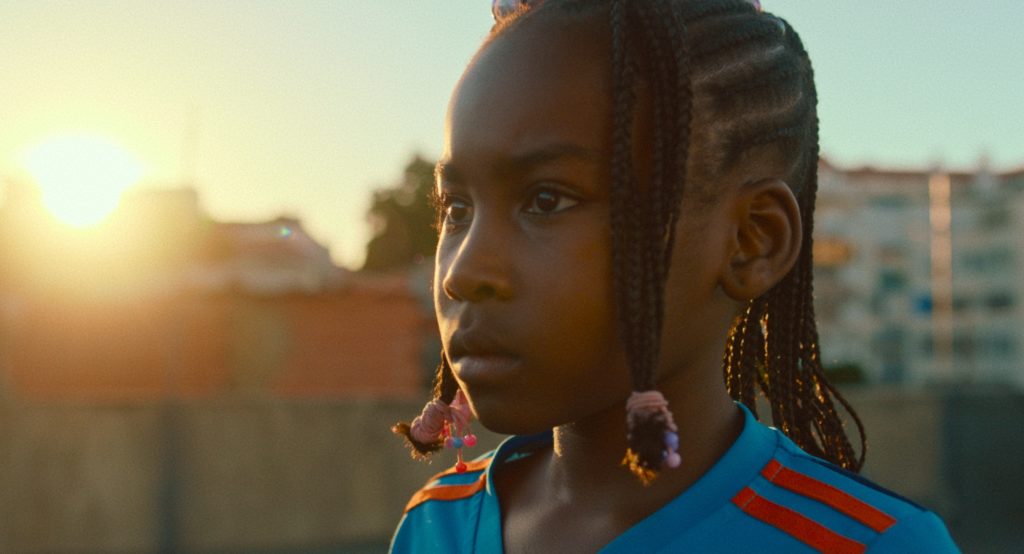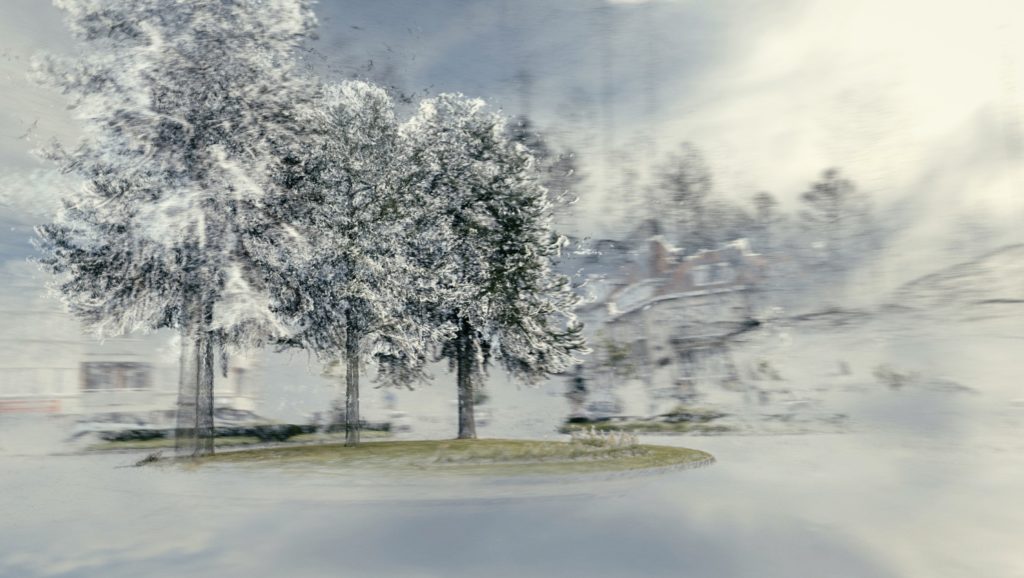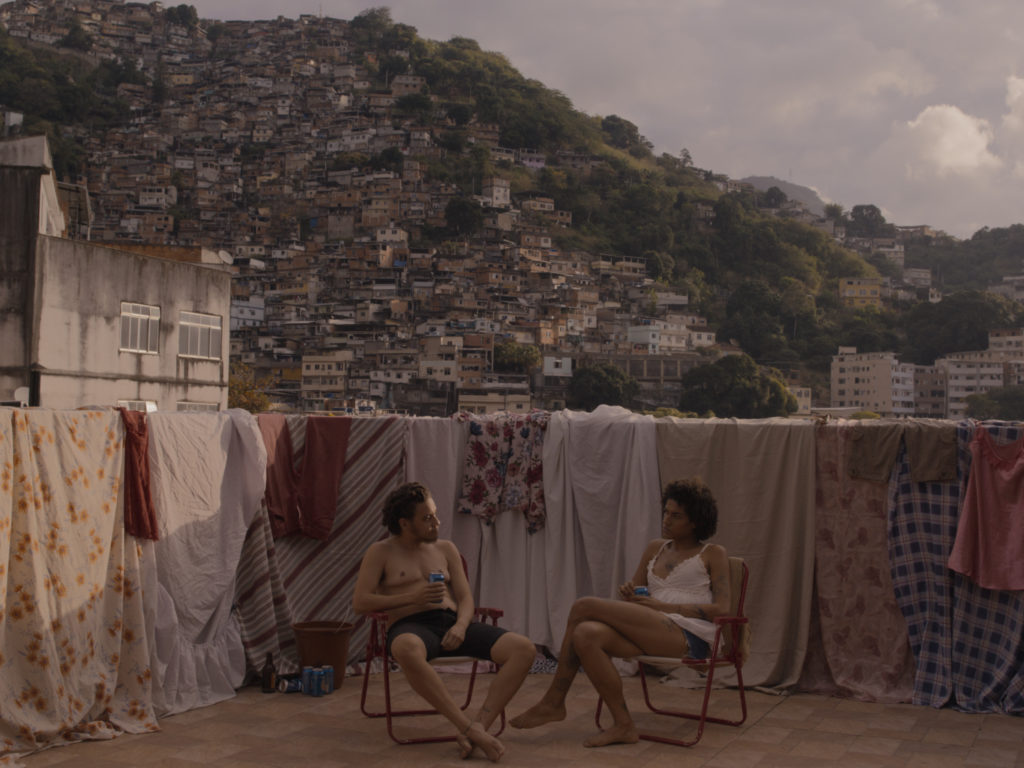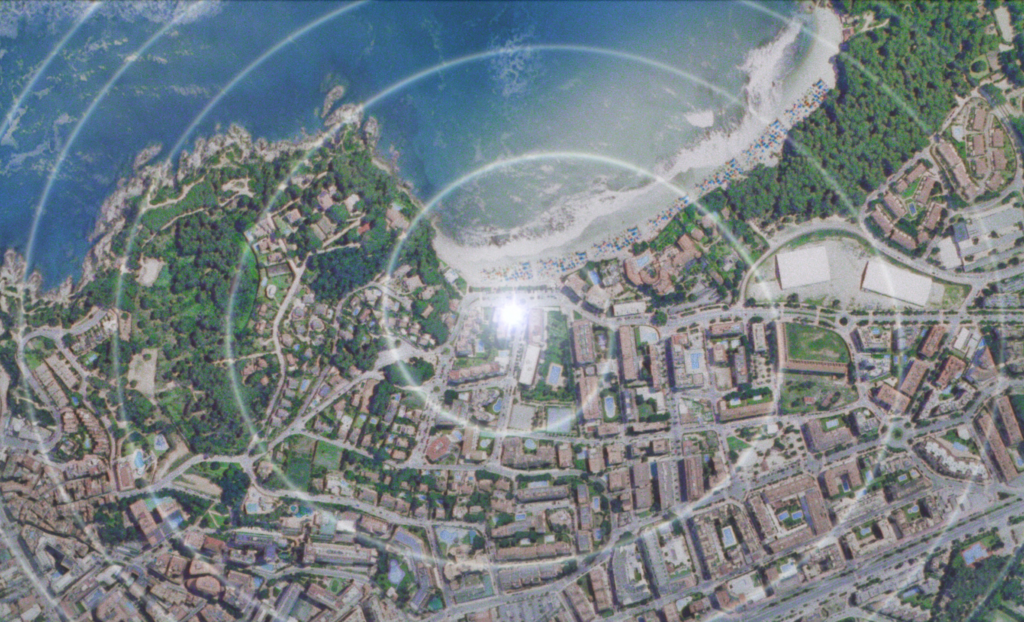Thursday 21 March (11:00) passholders only CCA Cinema // 1h20m // 15+
Thursday 21 March (20:30) GFT Cinema 3 // 1h45m // 15+
Saturday 23 March (15:30) GFT Cinema 3 // 1h45m // 15+
All films in our second Bill Douglas Award programme are led by ideas and characters that cannot be detached from a sense of place or defined location. The intriguing 2720 provides a lively but sensitive insight into a Lisbon community that suffers from poverty and overpolicing – a generous piece of docufiction. In the experimental documentary The despair of monkeys we learn about the colonial histories tied to the Araucaria ‘monkey puzzle’ trees, found in public and private gardens across Europe. Leonardo Martinelli, whose previous film Neon Phantom was a GSFF favourite, is back with the the luscious and moving A Bird Called Memory, including more choreography set in the streets of Rio de Janeiro, this time to queer an unwelcoming space. Finally, 2023 festival big hitter Daydreaming so vividly about our Spanish holidays is an absurd, innovative and wry exploration of young British people’s mass holidaying on the Balearic Islands, and what drives them there.
Tickets available here.
2720

Portugal, Switzerland // 2023 // 25 mins
After a police raid in a poor Lisbon neighbourhood, a 7-year-old girl searches for her missing older brother. At the same time, a newly released ex-convict tries to start anew, free from a life of crime.
Freshly released from prison, Jyzone finds himself running late on his first day at a new job. While he struggles to secure a ride, chance encounters seem to complicate his journey. Simultaneously, Camilla roams the neighbourhood in search of her missing brother, asking those around her for any sign of him. For both their tasks, we are given a glimpse into the interconnected fabric of the Reboleira community in Lisbon. In 2720, Basil De Cunha skilfully constructs an atmosphere of ease, community and connectivity through precise and meticulous filmmaking. His carefully choreographed camera submerges us into the clandestine neighbourhood, where spontaneous meetings take precedence over planned tasks. The camera trails but does not intervene; like the characters we follow, we too search for encounters from rich and developed characters along our way. However, overshadowing the ease of the film is the threat of police violence, an oppressive weight that hangs over the characters we meet and the neighbourhood we are so deeply immersed in. As our sense of urgency grows throughout the film, so does the undeniably real threat of a police raid, a threat of external violence on the internal peace of the community.
Nancy Holt
The Despair of Monkeys

La desesperación de los monos
France // 2022 // 17 mins
In Patagonia, the thousand-year-old Araucaria trees have almost been replaced by pine forests. Near my new home in Brussels, Araucarias adorn front yards. How have they become a petty bourgeois fad here?
In this experimental documentary, Julián García Long excavates a historical account of the araucaria tree, known natively as the Pewen. From their origin in Patagonia and their relationship to the indigenous Mapuche, to their contemporary and historical presence in Europe, the film contends with a specific kind of botanical colonialism. The point of inquiry into the subject is mapped between the filmmaker’s home, Patagonia, where the native araucaria tree is endangered, and Belgium where the filmmaker now lives. García Long utilises various approaches to imbue The despair of monkeys with a mysterious historical feel. In one sequence, a torch scans the ground at night time before finding an araucaria pine cone. Grainy film and archival footage situates the film as an insight into the past, and the director’s own narrated account reveals a personal connection to the trees and their story. The despair of monkeys emphasises the history of the now endangered araucaria tree and its legacy as a symbol of aesthetic and botanical conquest.
Naomi Gessesse
A Bird Called Memory

PÁSSARO MEMÓRIA
Brazil, United Kingdom // 2023 // 15 mins
A bird called Memory has lost its way back home. Lua, a trans woman, searches for Memory in the streets of Rio de Janeiro, but the city can be a hostile place.
A Bird Called Memory follows Lua, a barista in Rio, whose parrot companion, Memory, has failed to return to her cage as normal. So begins an understated urban saga as she walks the streets making bird calls in the hope that Memory returns to her. On her search, Lua contends with a spectrum of indifference and underhanded moments of objectification and transphobia. The film has a poetic cadence to it built around imagery and sense of place, with framing like the tableau shots that seem to suspend Lua within these large architectural structures that she must pass through on her travels. The indifference she rubs up against is the mechanism through which her loneliness is expressed. The film musical elements uncover a sense of magical realism at the heart of the film, and express the melancholy and desire of its protagonist. Through her journey the city unfolds into a site of exploration and meaning, a place that is hostile but through which she is deeply rooted. A Bird Called Memory gestures towards the conditions of work, gender, and community.
Naomi Gessesse
Daydreaming So Vividly About Our Spanish Holidays

LA HERIDA LUMINOSA Spain // 2022 // 24 mins
Driven by their desire for light and warmth, British teenagers take a trip to the Balearic Islands. They must absorb the sun and store it in their bodies to take it back to their cloud-covered kingdom.
Hands outstretched beside the saddest boiled sausages you’ve ever seen, our protagonist receives his golden ticket. Basking dopily in its warm reflection, this gift from his harried mother allows him to relocate not only geographically but generically – out of the kitchen-sink miserabilism of his Liverpudlian high-rise and into a Buñuelian fever dream of pilgrimage and penance. Daydreaming’s surrealist ethnography offers a wry theory of meteorological determinism. Whether pondering the architecture of monuments of leisure or studying the group dynamics of roving packs of teens, Christian Avilés captures the setting with an anthropologist’s eye for detail, noting the rhythms of the ritual. Cool white lethargy of day becomes hot neon excess of night. There’s a Freudian allegory in the totalising desires it presents: an almost erotic fixation on merging bodily with the life-giving sun converts, through futility, to an all-encompassing death drive. From its visual composition to its brutally observed humour, this is a short so utterly in control of every element that it is truly stunning that it arrives as a first student film. The world it conjures is so bizarrely engrossing, so consistently realised, that to watch it feels like a hallucinogenic holiday from reality. A trip, in more ways than one.
Oisín Kealy